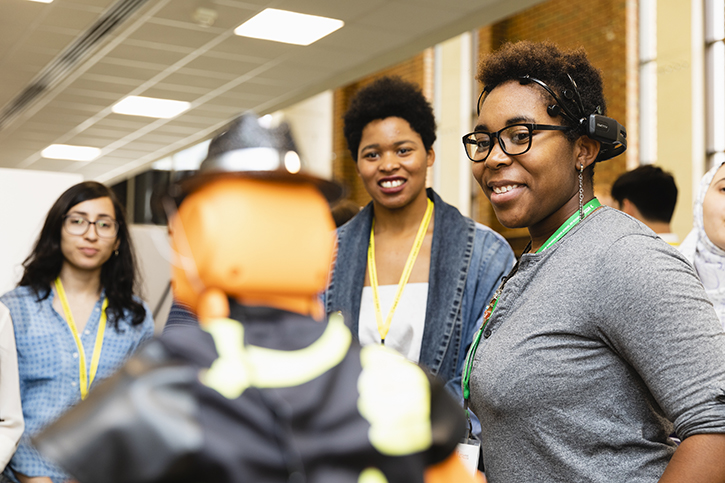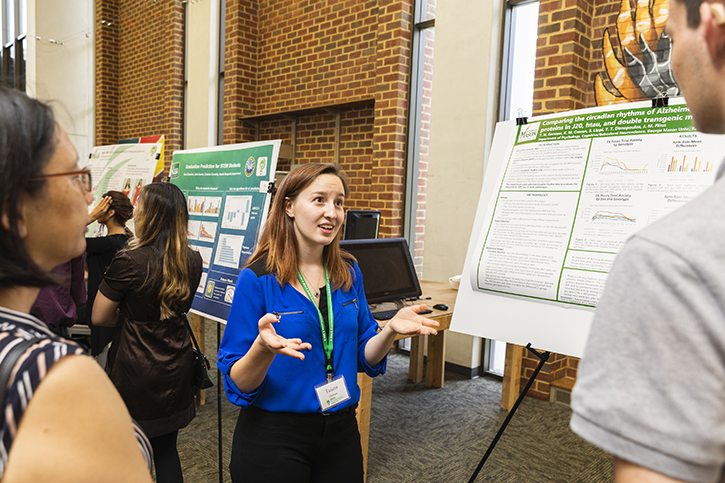
Levern Currie talks about a research project during the OSCAR Summer Celebration in the MIX at Fenwick Aug. 9, 2019. Photo by Lathan Goumas/Office of Communications and Marketing
Over the summer, undergraduates at George Mason University researched how to solve challenges facing the global community. At the Summer Celebration of Student Scholarship and Impact on August 9 at the MIX, the students presented the results of their multidisciplinary projects.
Hosted by the Office of Student Scholarship, Creative Activities and Research (OSCAR)—part of the Mason Impact initiative—the celebration included 70 poster presentations by 113 students.
“[OSCAR] gets students out of classroom learning and into more hands-on learning, where you get that experience of thinking through a problem and figuring out a new way of thinking,” said Karen Lee, assistant director of OSCAR.
Some of the questions students addressed in their research included how Alzheimer’s disease proteins in mice affect their activity patterns, which skin cleansers are the most helpful for the medical field to remove materials that may be confused for bruises under ultraviolet light, and how to automatically translate American Sign Language into text or speech.
In addition to research, student entrepreneurship was spotlighted at the event. Undergraduates participating in the eight-week Mason Summer Entrepreneurship Accelerator presented how they researched customer preferences to influence the direction of their small businesses, and others worked on the development of apps that solve students’ concerns like finding someone to sit with at lunch.
Kara Wright, a senior nursing student who did research on bruises, said being involved with OSCAR has been eye-opening, showing her how multiple disciplines depend on each other’s expertise to come up with creative answers to problems.
“[OSCAR] exposes you to things that you normally wouldn’t do in undergrad,” Wright said. “I think it’s important to get more young people interested in research because there’s so much you can explore.”
For many students, it’s also the first time they have the opportunity to do hands-on research.
“I learned a lot about working with a mentor and the research process as a whole,” said sophomore Grace Loonam, who studied invasive snail species and parasites and is a member of the Honors College. “It’s really great experience that I can take with me in the future [for additional research and jobs].”
Experiential learning and real-world experience aren’t the only benefits, Lee said—it’s also fun.
“To figure out something new, or write something no one’s ever written or come up with an answer no one’s ever had before—it’s really exciting,” Lee said.

Honors College student Tatiana Gervase talks about a summer research project during the OSCAR Summer Celebration in the MIX at Fenwick on Aug. 9, 2019. Photo by Lathan Goumas/Office of Communications and Marketing
